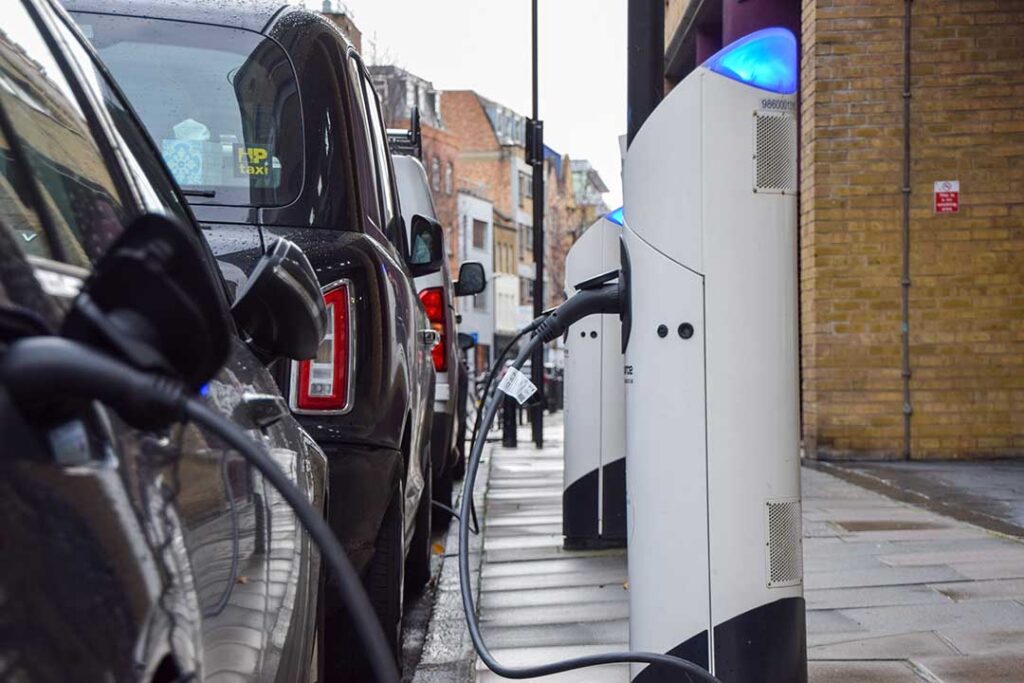WHAT’S CAUSING THE ENERGY CRISIS?
The timing of the energy crisis couldn’t be worse, with the wider cost of living crisis happening simultaneously across the UK, further exacerbating the situation for millions. There’s no single reason for the ongoing and increasing crisis; globally we’re seeing a perfect storm as a myriad of unfavourable circumstances all play out at the same time.
“We’re seeing a perfect storm as myriad unfavourable circumstances all play out at the same time”
So, how did we get here? Some of the key factors (the list could be much longer!), are: –
- War in Ukraine – whilst the UK isn’t specifically dependent on Russian gas (only around 4-6%), the war has seen a wider drop in international supply, which is heavily impacting global markets that do affect the UK.
- Asia’s Demand for Gas – China, in particular, has seen a huge post-Covid economic resurgence leading to an increased need for fuel, meaning supplies due for Europe are redirected to China, leading to higher global demand and price increases.
- Nordstream 2 – designed to double the supply of gas from Russia to Western Europe, the approval process was halted due to concerns that it would lead to increased Russian influence over the EU. The war in Ukraine means this situation is likely to remain unresolved for the foreseeable future and continue to impact global gas prices.
- Gas Storage Capabilities – the UK relies heavily on gas for home heating and cooking yet has limited gas storage capability (just 2% of annual demand, compared to an average of 25% across Europe), leaving us uniquely exposed to supply issues.
- Fossil Fuel Resurgence – to fill the energy gaps the UK, amongst many other territories, are re-firing coal power plants at huge cost
HOW ARE OTHERS DEALING WITH THE ENEGRY CRISIS?
The energy crisis isn’t limited to the UK. As we’ve already seen, a combination of global circumstances have coincided, meaning many countries still reliant on fossil fuels – gas in particular – in their energy systems are feeling the pressure. But is the crisis being felt to the same level in other countries? How are our European neighbours and global allies coping, and what mitigating measures and solutions are they putting in place?
“Many countries still reliant on fossil fuels are feeling the pressure”
- France – the French government stepped in early, capping gas prices last October, and more recently electricity prices. €580m in grants has been handed to low-income families, and state owned EDF has been forced to lower their electricity prices.
- Spain – the Spanish government has been forced to cut various taxes in order to prevent the rapid rise of bills. They have also implemented a ‘windfall’ tax on energy companies profiting from the crisis which is expected to raise €2.6bn.
- China – the government ordered 100’s of mines to increase coal production, whilst companies across the manufacturing sectors were asked to reduce energy consumption. More drastic measures have also been introduced, including enforced blackouts in some parts of the country.
- United States – The USA have announced that they are prepared to dip into their vast oil reserves to keep prices as low as possible, but other decisive action seems to be short on the ground with Biden potentially reluctant to pass drastic measures with mid-term elections looming.
IS THERE A SOLUTION?
There are huge lessons to be learnt from the ongoing energy crisis, and global leaders are rapidly discovering how major conflicts can impact energy supply and markets. Longer-term solutions are certainly easier to identify and implement, but in the shorter term what can stakeholders do to ensure that we don’t find ourselves in this situation again? There really isn’t one single answer to the question, rather a potential raft of measures to help accelerate decarbonisation and more rapidly reduce our reliance on fossil fuels.
“The best route to energy independence is to completely remove our reliance on fossil fuels”
Shorter term solutions may include:-
- Remove/Reduce VAT – removing Value Added Tax on energy bills is estimated to save around £300 a year for a typical household, which is approximately 50% of the recent price cap increase introduced in April. A welcome buffer until the £200 loan is introduced in October
- Windfall Tax –there has been reluctance in the UK to take this route. However, Chancellor Rishi Sunak has now threatened this if energy suppliers do not rapidly invest in clean energy projects, and a recent poll showed overwhelming public support for a windfall tax
Longer- term solutions are clearer: –
- Energy Independence – by reducing the need to import fuel from other territories, the UK would be in control of its own supplies, and additionally be unaffected by global market volatility and international price setting
- Clean Energy – perhaps the best route to energy independence is to completely remove our reliance on fossil fuels, and generate our own energy from sun, wind, and water. The UK has the renewable resources to power itself completely, but needs the political will to make this happen
How Are Geospatial Insight Helping?
Geospatial Insight are playing our own part in helping to mitigate the impacts of the energy crisis, by providing stakeholders with critical intelligence on where and why to deploy sources of clean energy generation, such as solar photovoltaics. Our automated, empirical analysis of the solar suitability of both land and rooftops is acting as a critical evidence base for the implementation of solar, based on a combination of the environmental and financial benefits and return on investments.
“The best route to energy independence is to completely remove our reliance on fossil fuels”

We’ve surveyed over 750,000 rooftops and 5,000 square kilometres of land, which has helped Local Authorities across the UK implement clean energy strategies faster, reduce the timescales traditionally associated with identifying and deploying solar projects, and deliver affordable renewable energy to their citizens and businesses. We’re also working with community energy groups to help local residents identify and create their own solar projects, and to proactively take control of their energy and financial futures.
Some of our clients and projects include: –
- Oxfordshire County Council, Project LEO (Local Energy Oxfordshire)’ – analysis of 2,600sqkm of land for solar suitability, and of 250,000 rooftops to measure solar potential
- BCP Council – assessment of the solar potential of over 100,000 rooftop across the Bournemouth conurbation
- Winchester City Council – analysis of 650sqkm of land to determine solar suitability, including Strategic Housing and Economic Land Availability Assessment (SHELAA) sites
- London Borough of Lambeth Council – solar suitability assessment of over 65,000 buildings across the Borough
- Milton Keynes Council – solar suitability analysis for over 100,000 buildings
- Eastern New Energy – analysis of over 600sqkm of land and 25,000 buildings to determine solar potential
- Community Energy South – assessment of 500sqkm of land and 45,000 buildings to identify solar suitability and support community energy project identification
- University of East London – analysis of the University campus buildings and student accommodation for rooftop solar potential
- Scottish Power & Northern Powergrid – assessment of the solar suitability of over 20,000 rooftops to determine potential solar generation capacity
An increasing number of energy stakeholders – including Local Authorities, Housing Associations, Community Groups, and Solar Developers – are turning to Geospatial Insight’s location-based services to support their strategic decision making, as they seek to implement effective clean tech deployment strategies. Our services are reducing the timescales traditionally associated with identifying and aggregating solar projects, facilitating the rapid, widescale transition to renewable energy generation we need if we are to meet the UK’s target of tripling solar capacity to 50 gigawatts by 2030.
Are you responsible for ensuring energy security for your citizens and businesses? Do you need actionable intelligence to accelerate your plans to deploy clean and affordable energy? Does your local community want to become energy independent and control its own financial future? Geospatial Insight’s solar suitability assessments can help you and your organisation deliver on your climate ambitions and enhance wider decarbonisation strategies. Get in touch today via [email protected] to catalyse your climate response.


